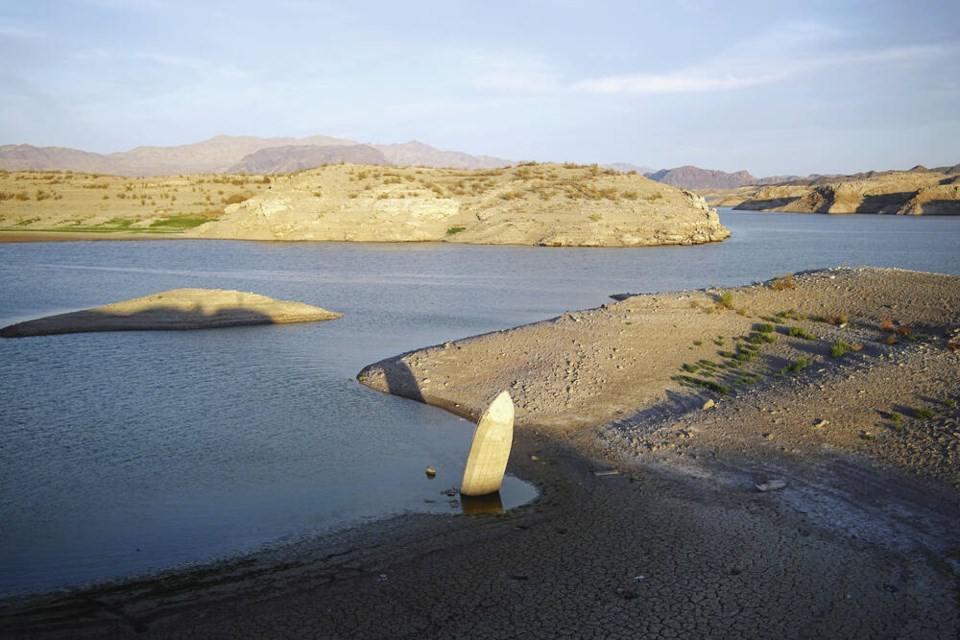Winston Churchill’s repeated warnings about Hitler and the Nazi threat during the 1930s mostly fell on deaf ears. “Up till the year 1934, the power of the conquerors remained unchallenged in Europe,” he wrote later, in The Gathering Storm, the first of the six volumes of his history The Second World War.
“German rearmament could have been prevented without the loss of a single life.” But “the peace and safety of mankind [were] neglected.”
These days it’s the scientists of the United Nations International Panel on Climate Change, along with Greta Thunberg and UN Secretary-General António Guterres, who are trying to warn us of the accelerating threat of global warming.
Denial is understandable. Who, after the horrors of the First World War, wanted to hear about another potential conflict involving Germany less than a generation later? Similarly, we want peace, prosperity, and a reliable and safe climate in our time and for future generations.
Yet, based on increasingly dire IPCC reports, Guterres is using language like “Code Red for Humanity” and telling us, “We have a choice: Collective action or collective suicide.”
Many people have asked themselves: How could this have happened? How could we have done this? These are questions of traumatic shock, which can paralyze people or lead to related challenges such as denial or addition—attempts to cope that, if they persist, quickly turn destructive by leeching control and sovereignty from their human hosts.
Reader upset is often evident on this newspaper’s Comment page. Susan Draper responded to publisher Dave Obee’s column of Aug. 4 on the Tyre Extinguishers by pointing out that we are living in a climate emergency and arguing that “if peaceful protests by the Tyre Extinguishers are causing you some angst, it’s time for a reality check.”
Her letter, in turn, sparked rejoinders from numerous readers. Particularly at issue were her suggestions that “we are running out of time” and may not “have another 30 years to gently transition to a zero-carbon world.” Two of her critics characterized these suggestions as “defeatist hyperbole” and the product of an “infantile mentality.” A third stated that “our existence is most threatened by weak or malicious intellects driven by pseudo-religious zeal.”
When something is too difficult to accept or even contemplate, why not deal with it by attacking or deflecting it? Of course, this is not to deal with it all.
It is notable that the 12-Step Program of Alcoholics Anonymous begins with an individual’s admission that they have an unmanageable problem, that they’ve lost their balance, and that they’re prepared to undertake “a searching and fearless moral inventory,” as well as other steps to find their personal truth and re-establish a firm footing in life. The program adopted the Serenity Prayer as its own.
God, grant me the serenity to accept the things I cannot change,
Courage to change the things I can, and
Wisdom to know the difference.
The prayer reinforces the 12-step process, which I summarize as admission/inventory/making amends/disciplined self-attention/and repeating the process as necessary.
While the climate crisis certainly provides opportunity for reflection, which is especially pertinent if one is triggered in defensive ways, we must not be too hard on ourselves.
Indeed, when Gwynne Dyer, the acclaimed author, historian, and independent journalist, spoke on climate change last September as part of Royal Roads University’s Changemakers Speakers Series, he emphasized this point at the start of his talk.
He referenced the recent work of astronomer Adam Frank, who has taken to calling himself an exo-biologist based on his speculations about life on potentially habitable exoplanets outside our solar system.
“Any planet that produces a high-energy civilization like ours,” Dyer stated based on Frank’s thesis, “will experience a climate emergency like ours” because blueprints for building civilizations don’t exist “and, therefore, we do it rather badly.”
As we were almost bound to make a mess, Dyer maintains it’s not useful “to beat ourselves up.” All we need to do, he adds, “is think our way though this” and make the necessary changes.
Whether it’s Churchill warning about the growing danger of the Third Reich or today’s inexorable threat of global warming, “the best way out is always through,” as the poet Robert Frost observed.
We must have our eyes open to reality if we are to see the truth of our situation, comprehend and learn from it, and act with vision and resolve to overcome it.
An analysis in The Globe and Mail in April by three Canadian scientists said, “if future emissions are decreased rapidly to net-zero by mid-century and then remain net-negative, global temperatures would peak around 1.6 C and then decline during the second half of the century. Here, temporary nature-based carbon removal would decrease the temperature peak by as much as a tenth of a degree.”
This scenario may be the best we can work toward, provided we have the vision and resolve to achieve net-zero by 2050. As we will see in Part 2 tomorrow, other scenarios are much less palatable and will likely involve a range of grisly choices that responsible people will want to avoid.
Inspired by the urgent example of Greta Thunberg, Patrick Wolfe has been writing about climate change since January 2019. His book, A Snake on the Heart – History, Mystery, and Truth: The Entangled Journeys of a Biographer and His Nazi Subject, will be published by Iguana Books later this year.
Gwynne Dyer’s one-hour talk can be found online by searching “RRU + Gwynne Dyer.”
Next week: Inaction on global warming is a form of Russian roulette
>>> To comment on this article, write a letter to the editor: [email protected]



